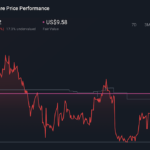Americans are better positioned with their emergency savings now than they were a year ago, but they’re feeling uneasy.

Inflation is making Americans feel more worried about their emergency funds.
Getty Images/iStockphoto
Inflation is eating into people’s confidence about their savings.
More than half (58%) of Americans reported they feel “very uncomfortable” or “somewhat uncomfortable” with the amount of emergency savings they have, according to a Bankrate survey released Thursday and conducted in early June, up 10 percentage points from last year.
Some 23% of households in the survey said they had “no emergency savings,” down 2 percentage points from 25% last year. Encouragingly, this is among the lowest level seen in 12 years of polling, said Greg McBride, chief financial analyst at Bankrate.
A recent report by the Federal Reserve Board found that 68% of U.S. adults said last year that they would be able to cover a $400 emergency with either cash, savings, or with a credit card that they could pay off when the next bill was due — a nine-year-high. That was up from 63% in 2019, before the COVID-19 pandemic began.
Americans are better positioned with their emergency savings now than they were a year ago, McBride said, “but inflation being at a four-decade high is eroding the comfort level as well as the buying power of the savings people have set aside.”
The cost of living jumped 1% in May on the back of higher rents, gas and food prices, pushing the rate of U.S. inflation to a 40-year high of 8.6%, making it harder for Americans to afford everyday items.
Indeed, many Americans have reported that they have already dipped into their savings to cover the rising prices. According to the Bureau of Economic Analysis, Americans had a personal savings rate of 4.4% in April, down from 6% at the start of the year. The savings rate expresses personal saving as a percentage of disposable personal income. “In other words, it’s the percentage of people’s incomes left after they pay taxes and spend money,” according to the BEA.
McBride said successful saving is best achieved by setting up a direct deposit into a savings account every month. “That way the savings happen first before you even think about it,” McBride said. “If you wait until the end of the month and try to save what’s left over, very often nothing is left over.”





